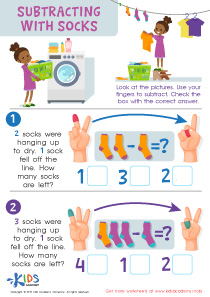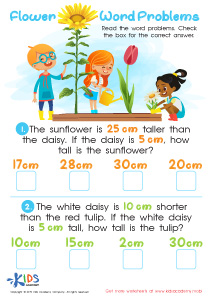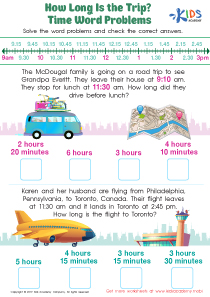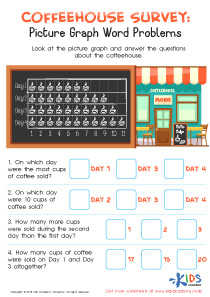Subtraction practice Easy Addition and Subtraction Word Problems Worksheets for Ages 6-9
12 filtered results
-
From - To
Our "Subtraction Practice Easy Addition and Subtraction Word Problems Worksheets" are designed for children ages 6-9. These engaging worksheets help kids build foundational math skills through fun and relatable word problems. Focusing on basic arithmetic, these sheets make learning subtraction enjoyable and stress-free. Perfect for young learners, they foster confidence and improve problem-solving abilities. Our carefully crafted problems adjust in difficulty to ensure a gradual and comfortable learning curve catering to different learning paces. Suitable for classroom use or at-home practice, they offer a solid stepping stone toward math mastery for early learners.
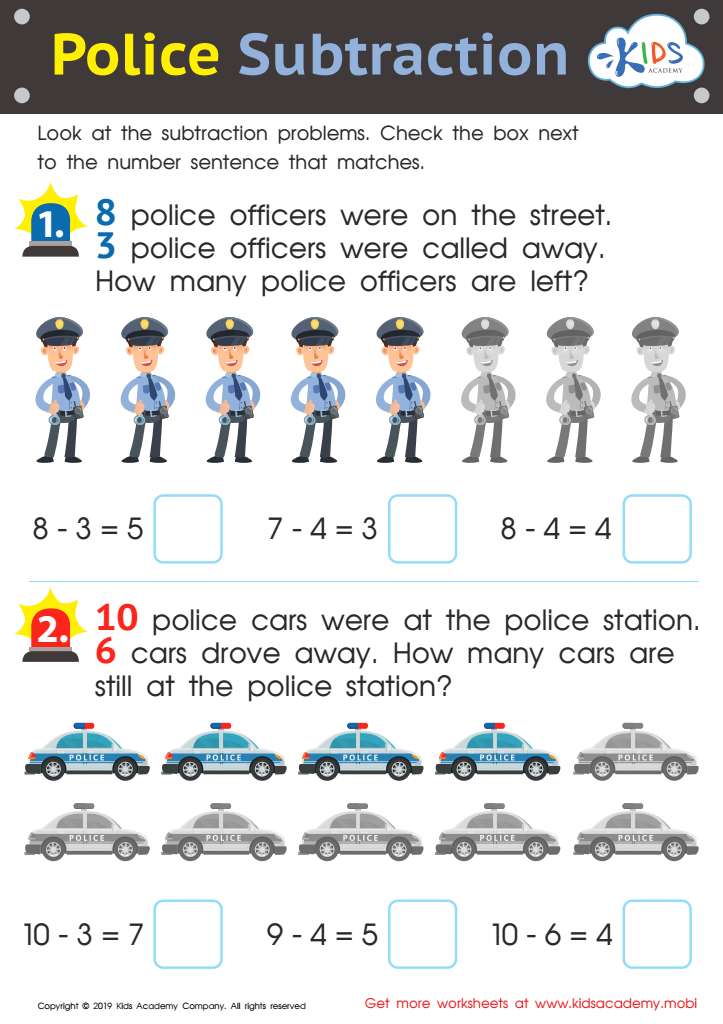

Police Subtraction Worksheet
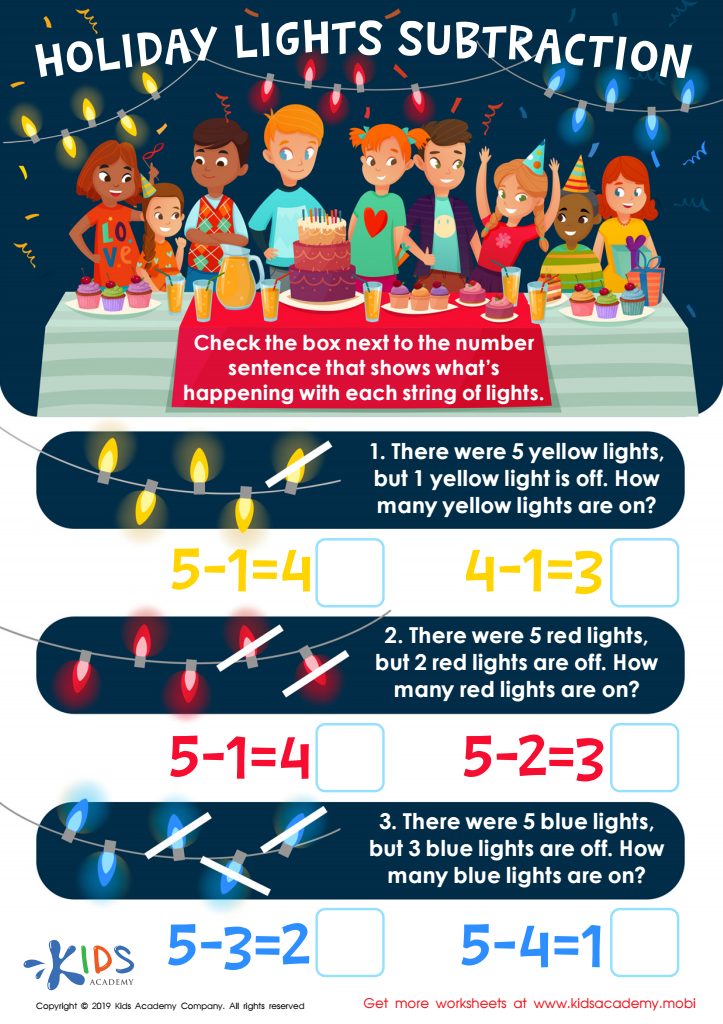

Holiday Lights Subtraction Worksheet
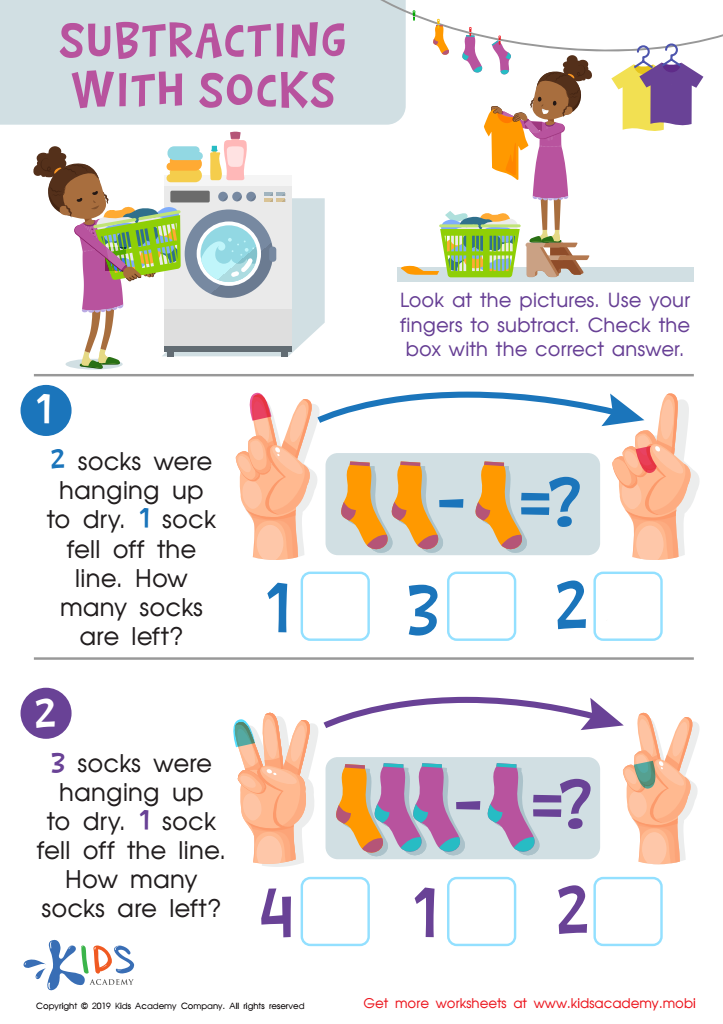

Subtracting Socks Worksheet
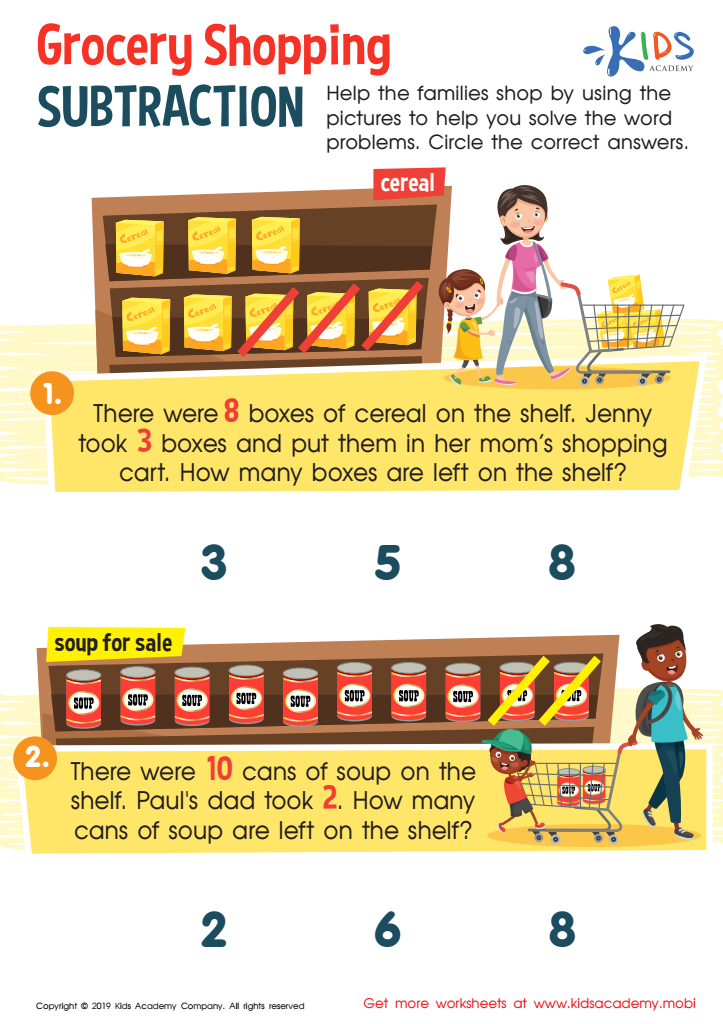

Grocery Shopping Subtraction Worksheet
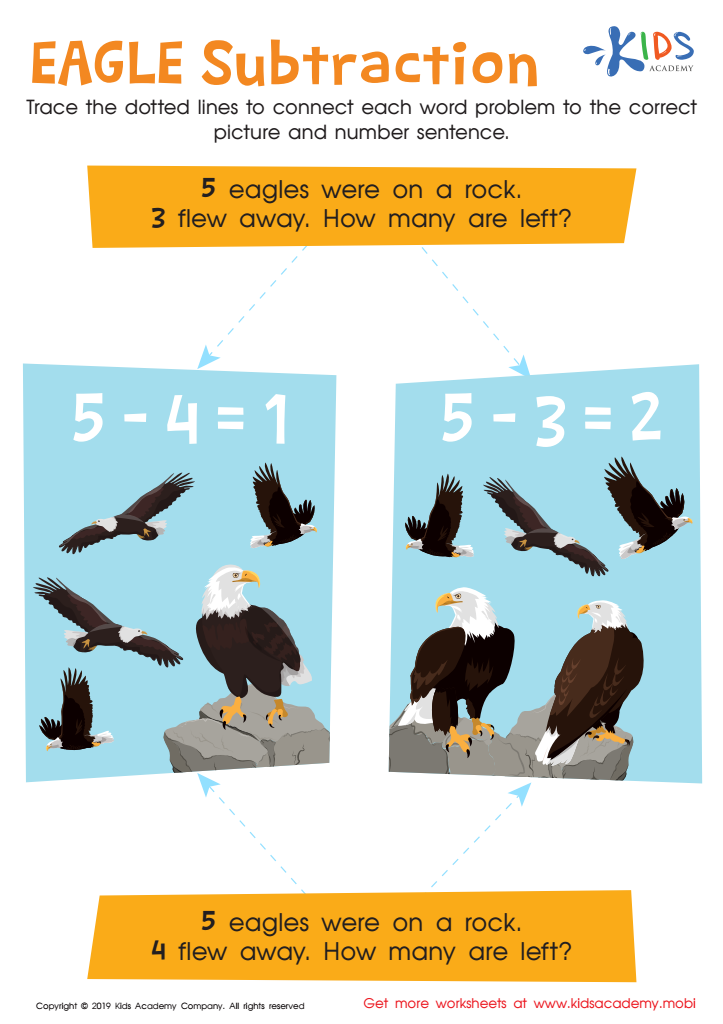

Eagle Subtraction Worksheet
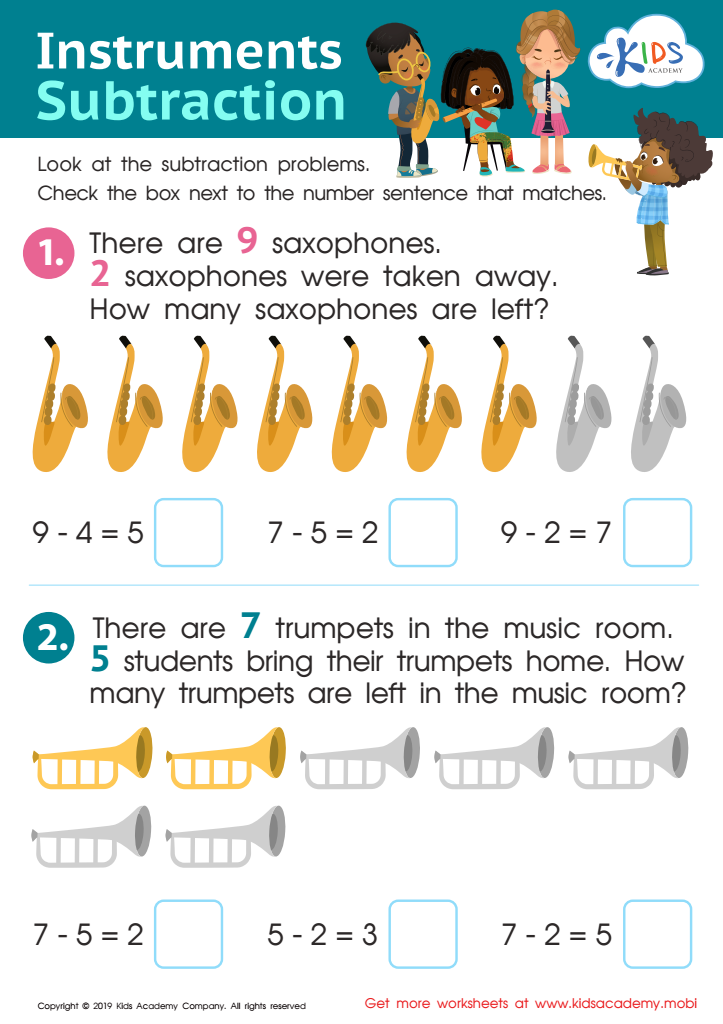

Instrument Subtraction Worksheet
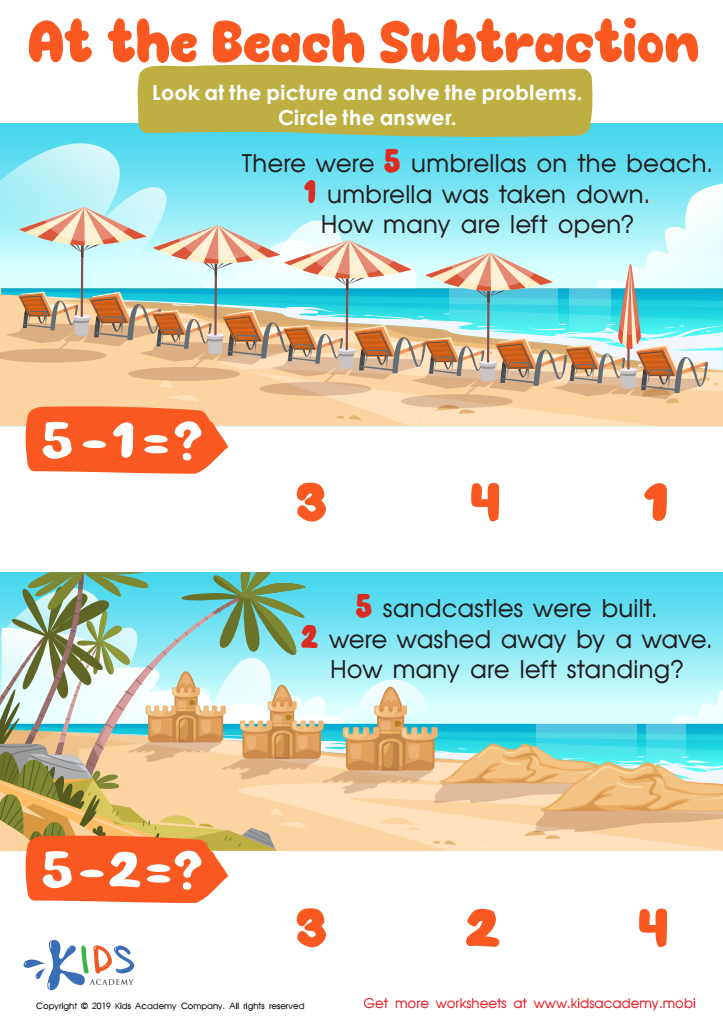

At the Beach Subtraction Worksheet
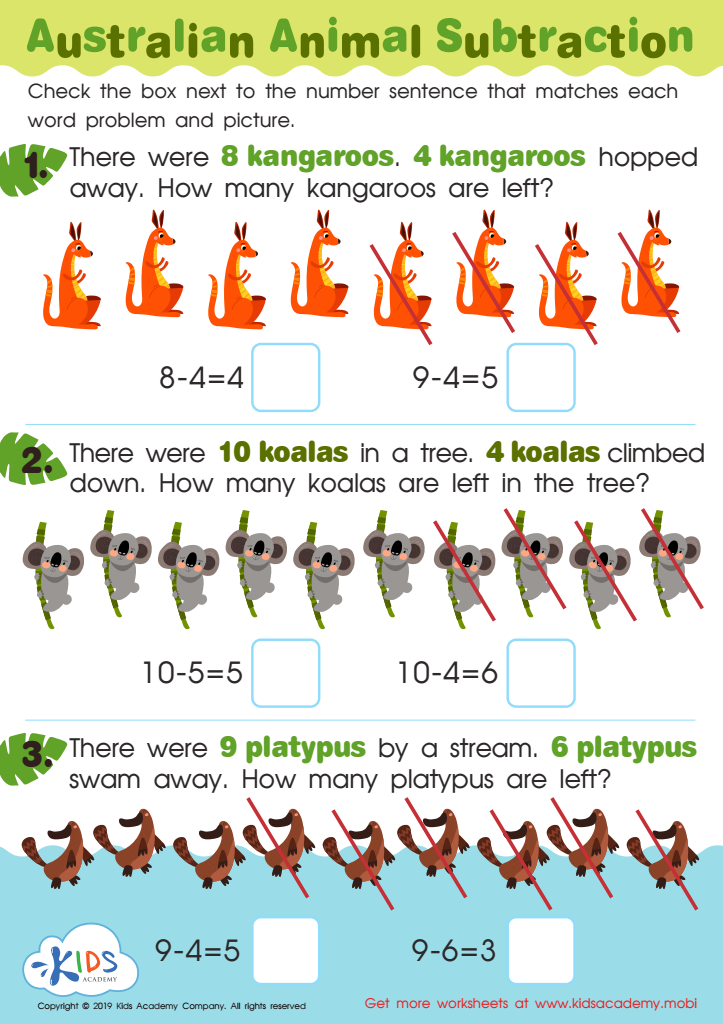

Australian Animal Subtraction Worksheet
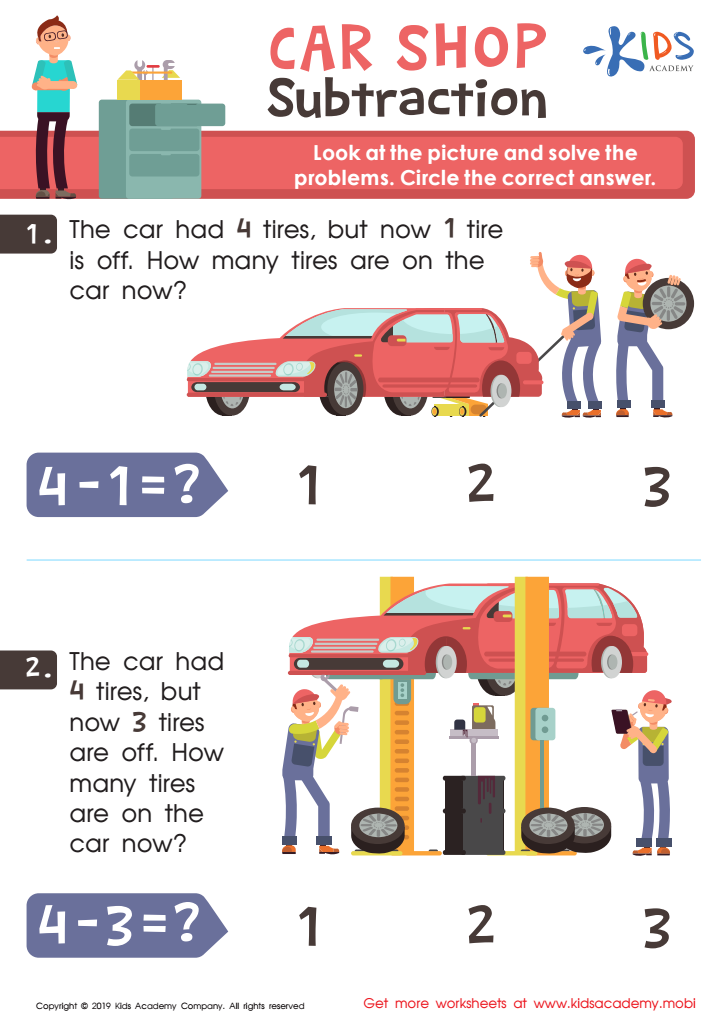

Car Shop Subtraction Worksheet
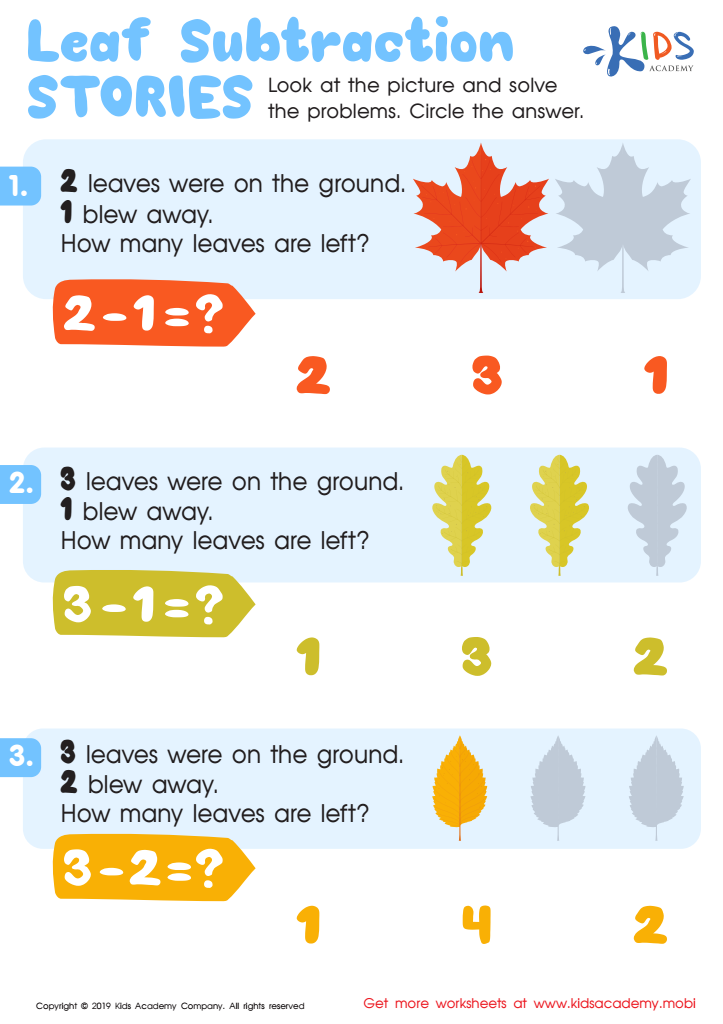

Leaf Subtraction Stories Worksheet
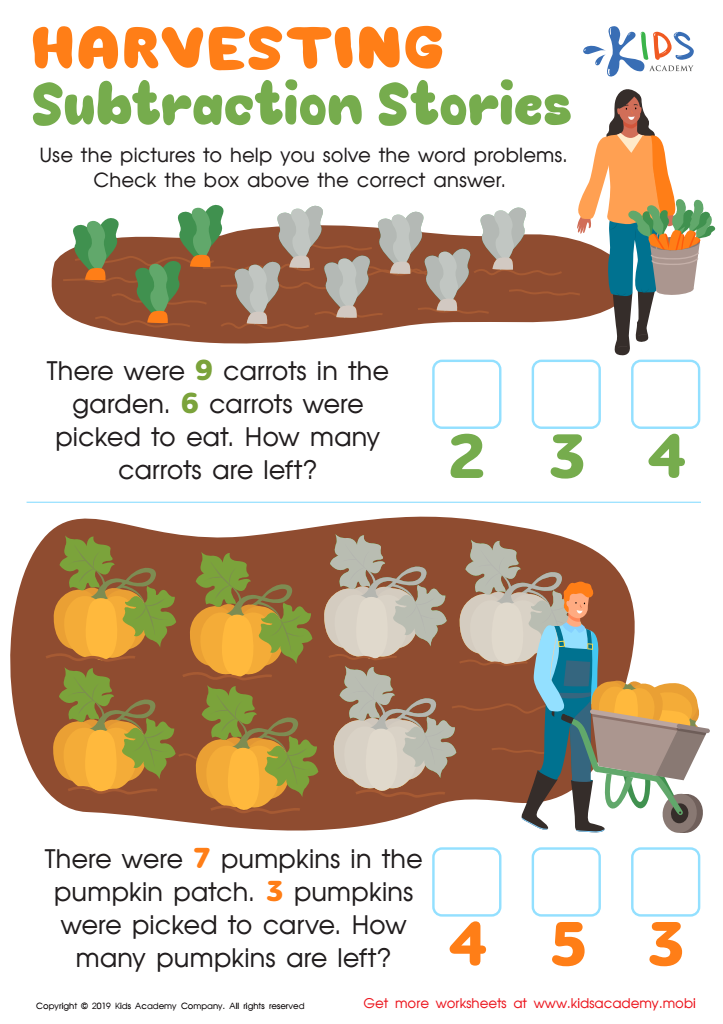

Harvesting Subtraction Stories Worksheet
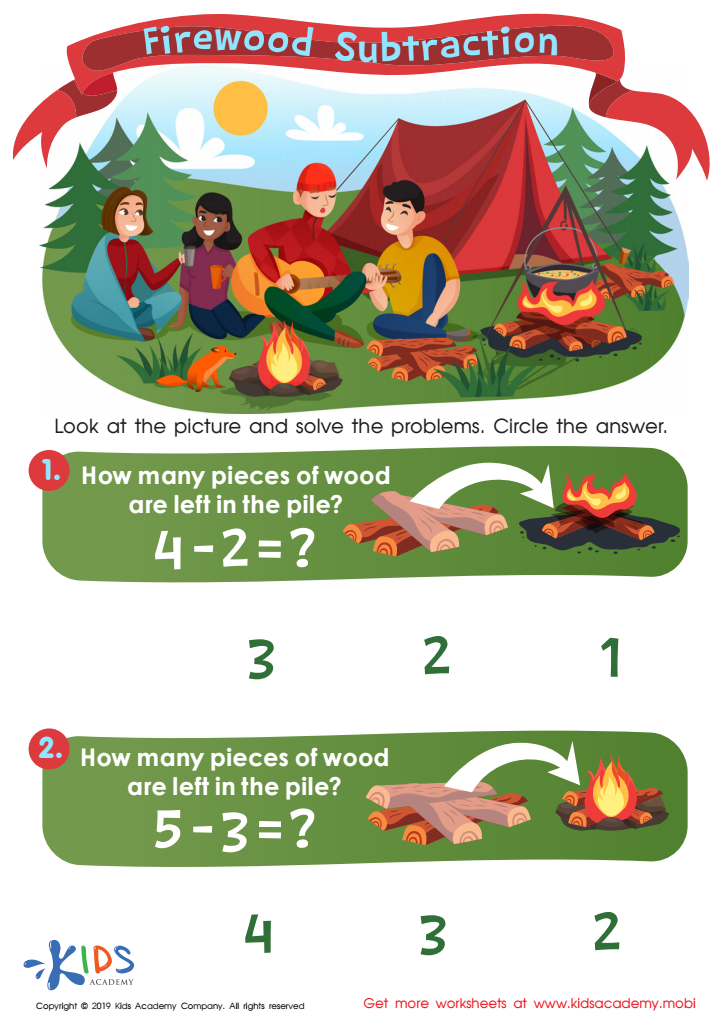

Firewood Subtraction Worksheet
Parents and teachers should invest attention in subtraction practice and easy addition and subtraction word problems for ages 6-9 because these foundational mathematical operations are essential building blocks for higher-level math skills. Mastery in these early stages establishes a strong numerical fluency, allowing children to understand more complex mathematical concepts with ease in later years.
Subtraction practice strengthens problem-solving abilities and critical thinking. It teaches children to think in a structured, step-by-step manner. Continuous practice through word problems enhances their comprehension skills by requiring them to interpret and translate verbal information into mathematical expressions. This fosters a better grasp of problem contexts and improvements in reading comprehension.
For ages 6-9, these skills are crucial, considering this timeframe is when children develop their core understanding of numbers. Consistent practice directly correlates with confidence-building in mathematics, reducing anxiety and creating a positive attitude towards the subject.
Moreover, early proficiency in basic arithmetic prepares children for real-life situations that involve mathematics, such as making transactions, understanding time, and more. Hence, by focusing on subtraction and simple word problems, parents and teachers pave the way for children’s long-term academic performance and daily functionality, broadening their cognitive development and future learning success.
 Assign to My Students
Assign to My Students













